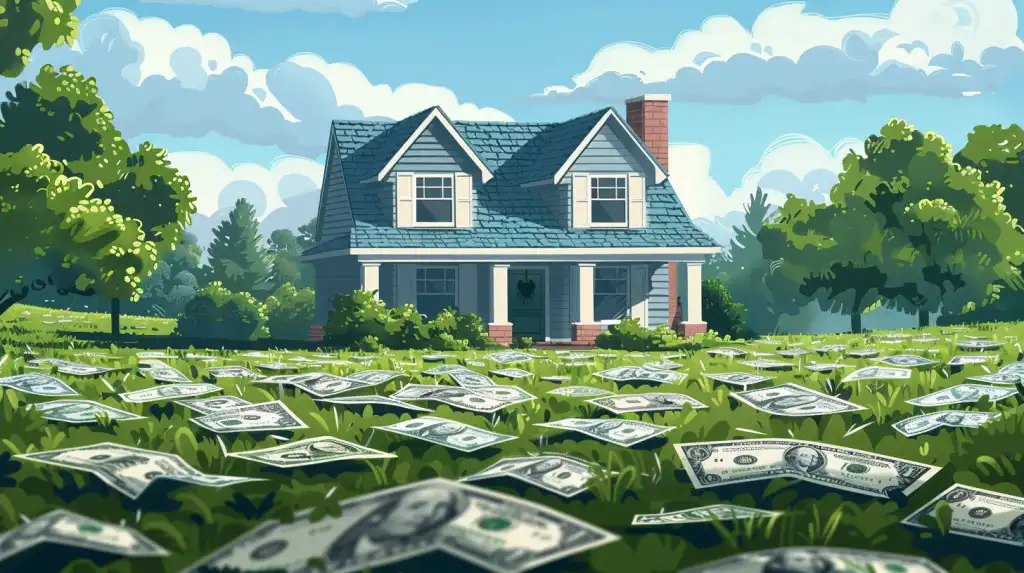09 October 2025
Let’s face it—qualifying for a mortgage can be tough even if you’ve got a flawless credit history. But when you have bad credit? It can feel like trying to climb a mountain in flip-flops. The good news is that while the road might be a bit bumpier, it's not impossible to qualify for a mortgage with bad credit. You just need the right approach, and a few smart strategies to improve your chances.In this guide, we’re going to walk through the steps you can take to boost your mortgage eligibility, even if that pesky credit score has taken a few hits in the past. Ready? Let’s dive in!
What Is Considered Bad Credit?

First things first, what exactly do we mean by "bad credit"? Credit scores generally range from 300 to 850, with higher scores representing better creditworthiness.
- Excellent Credit: 750 and above
- Good Credit: 700-749
- Fair Credit: 650-699
- Poor Credit: 600-649
- Bad Credit: Below 600
If you’re sitting anywhere below the 600 mark, most lenders will consider you a "high-risk" borrower. This may not sound great, but it doesn’t mean you’re out of options. There are still paths forward.
Why Does Bad Credit Matter When Applying for a Mortgage?
Your credit score is like a report card for your financial history. It tells lenders how likely you are to repay your debts based on your past behavior. If you’ve got a low score, it signals that you’ve had trouble managing credit in the past—whether that’s from missed payments, defaults, or even bankruptcy.
Lenders use this to assess the level of risk they take when offering you a mortgage. A lower credit score usually means:
- Higher interest rates. Lenders charge more to offset the risk.
- Larger down payment requirements. They want more security upfront.
- Limited mortgage options. You may only qualify for certain types of loans.
But it’s not all doom and gloom! There are ways to work around these obstacles.
How to Qualify for a Mortgage with Bad Credit
1. Check Your Credit Report for Errors
Before you do anything else, take a deep dive into your credit report. Mistakes happen more often than you might think, and they could be dragging down your score unnecessarily. Things like incorrect late payments, accounts that aren’t yours, or debts that have already been paid can all sneak into your report.
You’re entitled to a free credit report from each of the three major credit bureaus (Equifax, Experian, and TransUnion) once a year. Use these reports to:
- Identify errors.
- Dispute inaccuracies. You can file disputes online or by mail to have errors removed.
- Monitor your score. Regularly check how your score changes over time.
Fixing even one or two mistakes could give your score a much-needed boost before you apply for a mortgage.
2. Save for a Larger Down Payment
Want to show lenders that you’re committed, even if your credit score doesn’t reflect that? One surefire way is by saving for a larger down payment. Typically, lenders may require anywhere from a 3% to 20% down payment, depending on the type of loan. However, if your credit is less than stellar, putting down a larger chunk—say 20% or more—can help you qualify.
Why does this work? It reduces the lender’s risk. If you’re able to put more money down upfront, the lender sees you as less likely to default on the loan.
3. Look for Government-Backed Loans
If you have bad credit, conventional loans may not be the best option. But the government has your back! There are several government-backed mortgage programs designed to help people with less-than-perfect credit buy homes:
- FHA Loans (Federal Housing Administration): These are a popular option for borrowers with bad credit. You can qualify with a credit score as low as 500, as long as you put down at least 10%. If your score is 580 or above, you could qualify with as little as 3.5% down.
- VA Loans (Veterans Affairs): If you’re a veteran or active-duty military member, you might qualify for a VA loan. These loans don’t require a minimum credit score, though most lenders prefer a score of at least 580-620.
- USDA Loans (U.S. Department of Agriculture): For those buying in rural areas, USDA loans offer a path to homeownership with no down payment. Although there’s no minimum credit score, a score of 640 or higher is generally preferred.
4. Improve Your Debt-to-Income Ratio (DTI)
Your credit score isn’t the only thing lenders look at. They also pay close attention to your debt-to-income ratio (DTI), which is the percentage of your monthly income that goes toward paying debts. This includes things like credit card payments, car loans, student loans, and personal loans.
A lower DTI shows lenders that you have enough income to handle your mortgage payments on top of other debts. So, how can you improve your DTI?
- Pay off debts. If possible, focus on paying down high-interest debts like credit cards.
- Increase your income. Easier said than done, right? But consider side gigs, asking for a raise, or taking on part-time work to boost your income.
A good rule of thumb is to aim for a DTI below 43% to increase your chances of qualifying for a mortgage.
5. Find a Co-Signer
Sometimes, two heads (or credit scores) are better than one. If you’re struggling with bad credit, finding a co-signer can help you qualify for a mortgage. A co-signer is someone with better credit and financial stability who agrees to take responsibility for the loan if you default.
But be careful—this is a big ask. Your co-signer’s credit and finances will be on the line, so make sure you’re both comfortable with the arrangement.
6. Shop Around for Lenders
Not all lenders are created equal. Some cater specifically to borrowers with bad credit, while others stick to more traditional qualifications. Don’t be afraid to shop around and compare mortgage offers from multiple lenders to find the best deal.
When comparing lenders, look at:
- Interest rates. Even a slight difference in rates can impact how much you’ll pay over the life of the loan.
- Loan terms. Some lenders might offer more flexible repayment options.
- Closing costs and fees. These can vary widely between lenders.
Pro tip: Getting pre-approved by multiple lenders can also give you an idea of what you’re working with and help you negotiate better terms.
7. Consider Credit Counseling
If you're feeling overwhelmed, it might be worth looking into credit counseling services. These organizations can help you create a plan to manage your debt, improve your credit score, and prepare for homeownership.
Many credit counseling agencies are non-profit and offer free or low-cost services. They can give you tips on budgeting, paying off debt, and even negotiating with creditors.
8. Be Patient and Build Your Credit
Here’s the thing: Patience is key. While it’s possible to get a mortgage with bad credit, you might find better terms if you take some time to rebuild your credit first. Even small improvements in your credit score can make a world of difference when it comes to interest rates and loan options.
Here are a few ways to work on improving your credit:
- Pay bills on time. Payment history makes up a big chunk of your credit score!
- Keep credit card balances low. High credit utilization can hurt your score.
- Avoid opening new accounts. Too many new credit inquiries can lower your score.
If you're not in a rush to buy, a few months (or even a year) of intentional credit-building could save you thousands of dollars in the long run.
Final Thoughts: Don’t Let Bad Credit Hold You Back
Qualifying for a mortgage with bad credit can feel like an uphill battle, but it’s not impossible. By taking steps like saving for a larger down payment, exploring government-backed loans, improving your DTI, and shopping around for lenders, you can increase your chances of securing a mortgage and getting the keys to your dream home.
Sure, the process might take a bit more patience and strategy, but remember—you’re not alone on this journey. With a little determination and some smart financial moves, that mountain you’re climbing will start to feel more like a hill. Happy house hunting! 🏡


